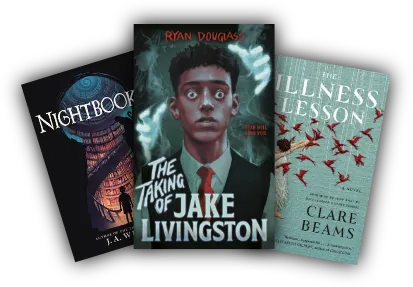How To Write a Book Review on an Autobiography

Autobiographies offer us a glimpse into the deeply personal and unique experiences of someone’s life journey. Whether it’s a tale of triumph over adversity, the account of a famous personality’s legacy, or a humble story from an unknown voice, autobiographies present raw human experiences in their most authentic form. But how do you write a compelling review of an autobiography? How do you analyze someone’s personal truth without sounding insensitive, biased, or simply unengaging?
In this detailed guide, we’ll walk you through how to write a book review on an autobiography—from the structure and tone to the dos and don’ts that will help you craft an insightful, respectful, and captivating review.
Table of Contents
Toggle📚 What is an Autobiography?
An autobiography is a self-written account of the author’s life. Unlike a biography (written by someone else), an autobiography offers the reader a first-person, introspective perspective—one filled with personal emotions, reflections, and memories. Famous examples include The Diary of a Young Girl by Anne Frank, Long Walk to Freedom by Nelson Mandela, and Becoming by Michelle Obama.
These books don’t just narrate events—they share lived experiences, philosophies, and struggles, making them more subjective and emotionally charged than most genres.
🖋️ Why Reviewing an Autobiography Is Different
When you review fiction, you can critique character development, plot coherence, or pacing. But with an autobiography, you’re reviewing someone’s life, often their pain, accomplishments, growth, and sometimes their deepest traumas.
This genre requires a balance of critical thinking and empathy. You’re not judging whether their experiences are valid—you’re evaluating how effectively they conveyed those experiences through storytelling.
✅ Step-by-Step: How to Write a Book Review on an Autobiography
1. Start With a Catchy Introduction
Your introduction sets the tone for your review. Start by mentioning:
- The title and author of the autobiography
- Why the subject is notable or why the book matters
- A brief teaser or central theme (without giving everything away)
Example:
In Educated, Tara Westover brings readers into the raw, isolated world of a survivalist family in rural Idaho. With no formal education until the age of 17, her journey to earning a PhD from Cambridge is nothing short of extraordinary.
You want to hook your audience and establish context early on.
2. Summarize the Narrative – But Don’t Reveal Too Much
Briefly outline the arc of the author’s life as presented in the book. Be concise and avoid spoilers, especially for autobiographies with twists, trauma, or emotional reveals.
Include:
- Key phases in the author’s life (childhood, career, personal turning points)
- The core message or central conflict
- Themes like resilience, identity, oppression, fame, etc.
Avoid long summaries. Your review isn’t a book report—it’s an analysis and reflection.
3. Evaluate the Writing Style
An autobiography is more than just facts—it’s also about how those facts are presented. Consider:
- Is the tone conversational, poetic, serious, humorous?
- Is the narration engaging or did it drag in places?
- Are there vivid descriptions or a strong emotional voice?
- Did the author have a strong command of language?
Tip: If the autobiography was ghostwritten or co-authored, you might mention how that influenced the storytelling (positively or negatively).
4. Discuss Emotional Impact and Authenticity
This is where autobiography reviews shine. Ask yourself:
- Did the book move you emotionally?
- Were the author’s struggles or victories relatable or inspiring?
- Did their honesty make you reflect on your own life?
Authenticity is critical. If it felt too polished, dramatic, or sugar-coated, mention that. Readers appreciate reviews that reflect on how believable and raw the book felt.
5. Analyze the Structure and Flow
Autobiographies can be linear, fragmented, or thematic. Discuss:
- Did the book follow a clear timeline?
- Were the chapters well-organized?
- Did the pacing feel rushed or slow?
- Were there repetitive parts or abrupt transitions?
This helps potential readers know what to expect in terms of readability.
6. Mention Key Takeaways or Memorable Moments
What ideas, lessons, or moments stood out to you?
- Did the book offer wisdom or inspiration?
- Were there specific scenes that made a lasting impression?
- Did the author share philosophies or thoughts that resonated?
You can quote a passage or describe a moment that made you pause and think. This adds depth and personality to your review.
7. Critique With Care and Balance
Criticism is fine—but be respectful. You’re not just critiquing writing—you’re responding to someone’s real life.
Valid critiques may include:
- Inconsistencies in storytelling
- Lack of emotional depth
- Glossing over serious events
- Underdeveloped relationships or themes
Always frame your criticism with compassion and objectivity.
8. Wrap Up With a Final Verdict
End your review with a clear recommendation or closing thought:
- Who would enjoy this book? (fans of memoirs, history lovers, etc.)
- What type of mood or mindset suits this read?
- How did it impact you personally?
Example:
Born a Crime by Trevor Noah isn’t just a memoir—it’s a powerful exploration of apartheid, identity, and the resilience of humor. Highly recommended for readers who enjoy history told through a deeply personal lens.
✍️ Bonus Tips for Writing a Memorable Review
🔹 Use the First Person
It’s okay to write “I felt,” “I thought,” or “In my view.” Reviews are subjective, and readers connect more when you sound like a real human.
🔹 Avoid Spoilers
Be careful not to reveal pivotal events unless necessary—and always warn the reader first.
🔹 Keep It Honest But Respectful
You can dislike the book, but don’t disrespect the person behind it. Be fair and kind.
🔹 Make It Shareable
Include quotes, thought-provoking questions, or emotional reactions that other readers might relate to and share online.
🧠 Questions to Ask Yourself While Writing
- What surprised me about the author’s journey?
- Did I feel connected to the author’s emotions?
- Did the book change how I think about a certain issue?
- What lessons can others take from this story?
- Would I read this again or recommend it?
These questions can add depth and personality to your review.
📌 Common Mistakes to Avoid
❌ Judging the Author’s Life Choices:
You’re reviewing the writing, not their morality or decisions.
❌ Too Much Summary:
A review is not a full recap. Focus more on reflection and analysis.
❌ Overly Formal Language:
Keep it conversational and accessible unless you’re writing for an academic audience.
❌ Neglecting the Emotional Response:
Your emotional journey through the book is as important as your critique of it.
📖 Example Review Summary (For Practice)
Here’s a sample one-paragraph review you might model yours on:
In I Am Malala, Malala Yousafzai shares her courageous fight for girls’ education in Pakistan with extraordinary grace and maturity. Her voice is honest, intelligent, and deeply moving. Though the pacing slows in the middle, her story shines with hope and resilience. A must-read for anyone interested in human rights, global education, and the strength of youth activism.
Final Thoughts
Writing a review on an autobiography is a unique experience—part literary analysis, part emotional response, and part moral reflection. It challenges you to step into someone else’s shoes while honoring their truth. Whether you’re reviewing for a blog, a book club, Goodreads, or your personal journal, remember that your voice matters. A well-crafted review can help others discover life-changing books—and that’s the real magic of literature.

